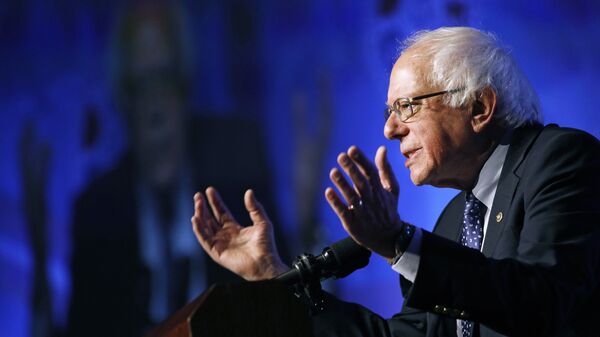Democratic presidential candidate Bernie Sanders has favoured a joint partnership against climate change rather than selling billions of dollars worth of military equipment to India. Sanders said this military sale would only benefit American defence equipment makers while the two countries should focus on worsening air quality around the world.
"Instead of selling USD 3 billion in weapons to enrich Raytheon, Boeing and Lockheed, the United States should be partnering with India to fight climate change. We can work together to cut air pollution, create good renewable energy jobs, and save our planet", Sanders posted on Twitter.
The statement by Sanders came hours before New Delhi and Washington were set to sign a $3 billion defence contract on naval multi-role helicopters on Tuesday after bilateral talks between Indian Prime Minister Narendra Modi and US President Donald Trump.
Instead of selling $3 billion in weapons to enrich Raytheon, Boeing and Lockheed, the United States should be partnering with India to fight climate change.
— Bernie Sanders (@SenSanders) February 24, 2020
We can work together to cut air pollution, create good renewable energy jobs, and save our planet. https://t.co/nqKS2CWypT
On Monday, addressing a public rally at Sardar Patel Stadium in Ahmedabad, Trump announced over $3 billion in military contracts with India that include the "absolute finest, state-of-the-art military helicopters" and other equipment to the Indian Armed Forces.
Last week, the Cabinet Committee on Security, headed by Narendra Modi, approved the purchase of 24 MH-60R multi-role choppers for the Indian Navy. The helicopters will replace the Navy's ageing SeaKing helicopters, which have been operating for the last five decades.
Vermont Senator Bernie Sanders, a self-described Democratic socialist, has made climate change one of the top issues during his campaign and advocated change in national priorities against the backdrop of “massive levels of income and wealth inequality”.
Sanders has proposed a "green New Deal" to deal with climate change that focuses on renewable energy, energy efficiency, and clean transportation, among other areas.


